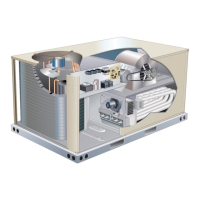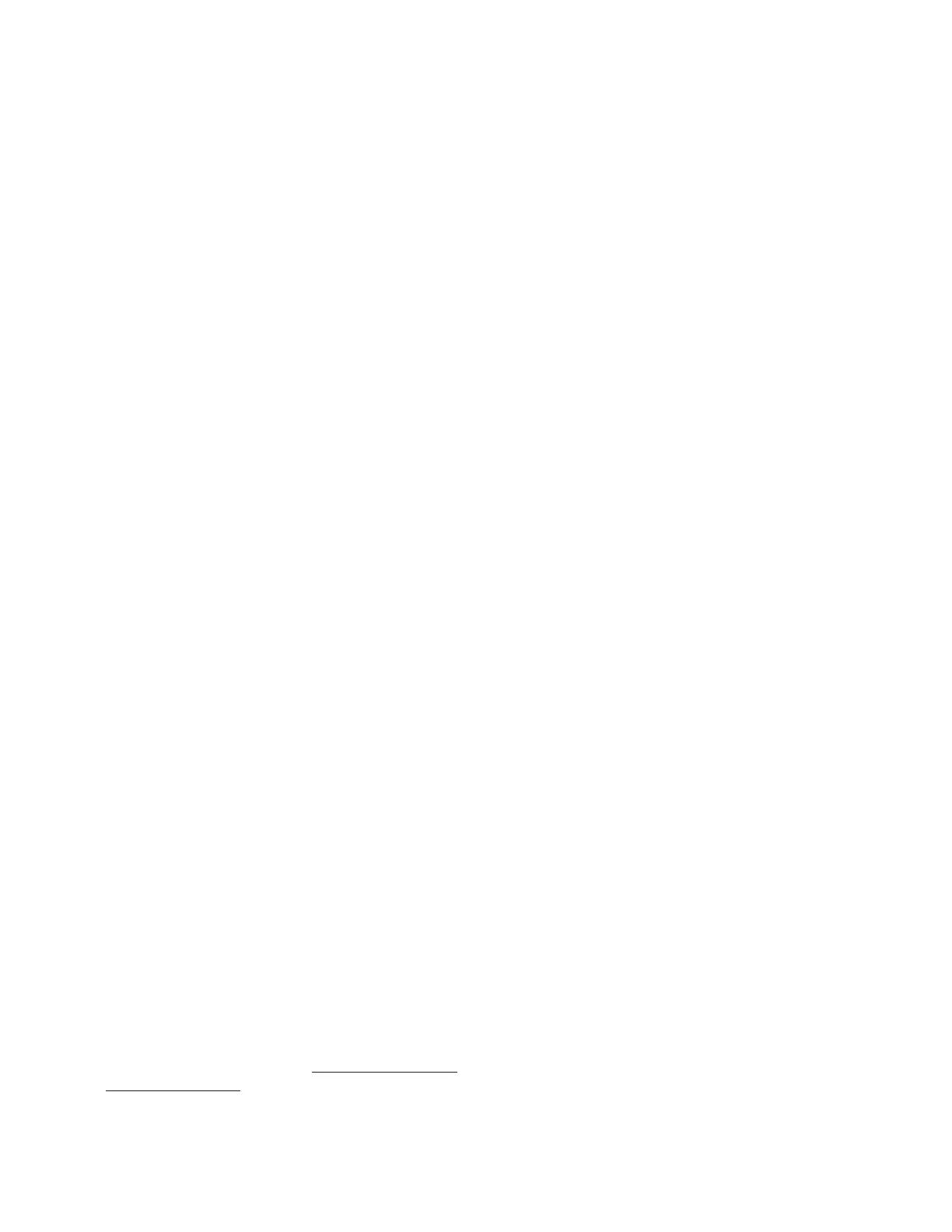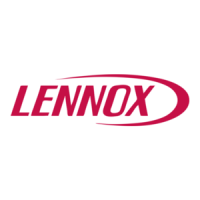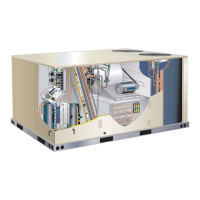Page 37
C-Cooling Start-Up
A-Operation
1 -
according to instructions provided with thermostat.
Note - ZGB074 units are equipped with two-stage
compressors.
2 - No Economizer Installed in Unit -
-
pressor 1 and the condenser fan. An increased cooling
Units Equipped With Economizer -
-
-
acceptable unit will operate as though no economizer
is installed.
074 Units With No Economizer Installed-
-
-
074 Units Equipped With Economizer -
-
outdoor air is not acceptable unit will operate as though
no economizer is installed.
3 - Units contain one refrigerant circuit or stage.
rating plate for correct amount of charge.
5 -
proper method to check refrigerant charge.
B-Three Phase Scroll Compressor Voltage Phasing
Three phase scroll compressors must be phased sequen-
tially to ensure correct compressor and blower rotation
and operation. Compressor and blower are wired in phase
1 - Observe suction and discharge pressures and
blower rotation on unit start-up.
2 -
must rise and blower rotation must match rotation
3 - Disconnect all remote electrical power supplies.
the line side of K1 contactor. Do not reverse wires
at blower contactor.
5 - Make sure the connections are tight.
Discharge and suction pressures should operate at their
normal start-up ranges.
D-Safety or Emergency Shutdown
IV-CHARGING
WARNING-Do not exceed nameplate charge under
any condition.
This unit is factory charged and should require no further
-
quired nameplate charge.
NOTE - System charging is not recommended below 60°F
(15°C). In temperatures below 60°F (15°C), the charge
must be weighed into the system.
IMPORTANT - Charge unit in standard cooling mode
high stage only.
1 - Make sure outdoor coil is clean. Attach gauge
manifolds and operate unit at full CFM in cooling
mode with economizer disabled until system
all outdoor air dampers are closed.
2 -
the gauges. Check unit components if there are
3 - Measure the outdoor ambient temperature and
circuit charging curve to determine a target liquid
temperature.
Note - Pressures are listed for sea level applications.
Use the same thermometer to accurately measure
• If measured liquid temperature is higher than the
-
tem.
• If measured liquid temperature is lower than the
from the system.
5 - Add or remove charge in increments. Allow the
system to stabilize each time refrigerant is added
or removed.
Continue the process until measured liquid
temperature agrees with the target liquid
temperature. Do not go below the target liquid
temperature when adjusting charge. Note that
suction pressure can change as charge is adjusted.
7 -
until measured liquid temperature agrees with the
target liquid temperature.

